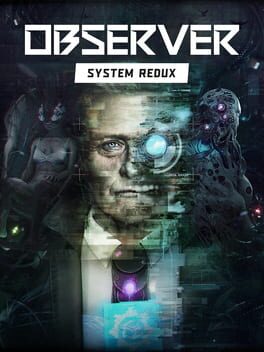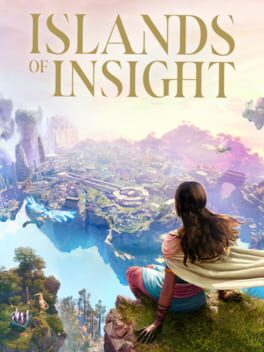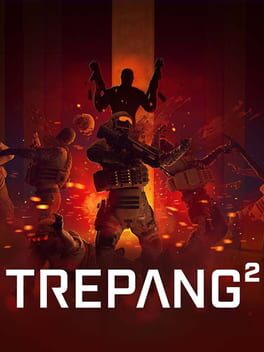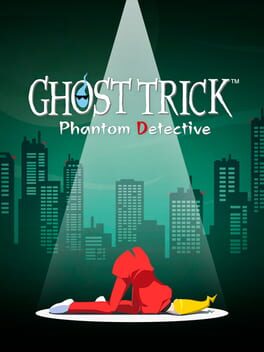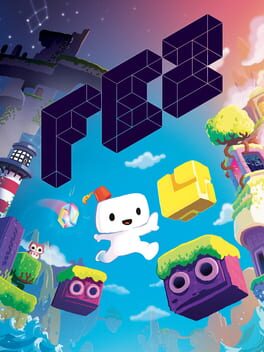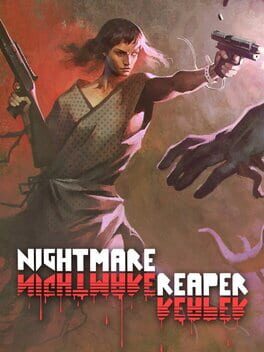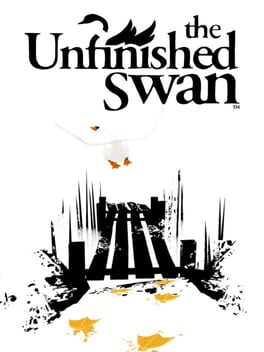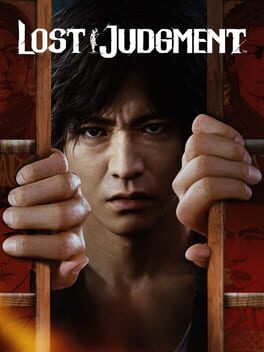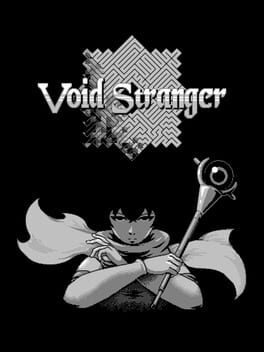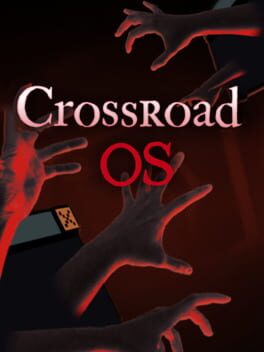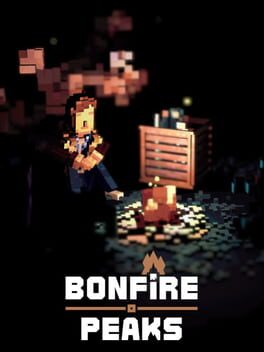Hologon
An odd experience to be sure, but a welcome one.
Cyberpunk is not really a theme I am usually too interested in, but Observer's heavy dystopian take on it was honestly really cool. Being stuck in a lockdown of an apartment complex trying to solve a mystery (or a few) is a good concept, and I appreciate the freedom that is given to explore the environment. Using the bio and tech scanners along with some intuition to figure things out was a familiar but welcome concept.
Of course, the title also hints toward another way the game lets you discover things which is exploring people's minds. This is definitely an interesting component, but it leans far too heavy into the abstract for my personal tastes. It is usually not too difficult to understand the point of what is being shown, but it's surrounded by a ton of shit that is just weird for the sake of being weird. Also, you could repeat that exact same sentence replacing "weird" with "scary" because this is also a horror game I guess? I think it could have done without both of those things and stood even higher, but I still enjoyed my time.
Cyberpunk is not really a theme I am usually too interested in, but Observer's heavy dystopian take on it was honestly really cool. Being stuck in a lockdown of an apartment complex trying to solve a mystery (or a few) is a good concept, and I appreciate the freedom that is given to explore the environment. Using the bio and tech scanners along with some intuition to figure things out was a familiar but welcome concept.
Of course, the title also hints toward another way the game lets you discover things which is exploring people's minds. This is definitely an interesting component, but it leans far too heavy into the abstract for my personal tastes. It is usually not too difficult to understand the point of what is being shown, but it's surrounded by a ton of shit that is just weird for the sake of being weird. Also, you could repeat that exact same sentence replacing "weird" with "scary" because this is also a horror game I guess? I think it could have done without both of those things and stood even higher, but I still enjoyed my time.
2024
If Ubisoft made a puzzle game, this is about what I imagine it would be. There's some genuinely fun puzzles (mostly logic grids), and then a ton of 123abc filler """puzzles""". The game is "multiplayer", but there is 0 interaction between players so it is entirely pointless. Overall just experimental in all the wrong ways, but still kinda fun to play as a chill game.
2023
I can't really tell if this title wants to be like DOOM or Call of Duty, because it seems to try both and not quite hit a peak on either front. The two main abilities (cloak and bullet-time) are very fun to use in combat, but the weapons left a lot more to be desired. Every time I tried to use a different weapon I always just gravitated back to the shotgun, and the gap gets even larger on the game's harder (and downright unfair) difficulties.
Trepang2 also has a narrative that was more interesting than I expected, but still nothing to write home about. Some levels even focused more on this than combat, which I found pretty odd. At the end of the day, I'm playing a game like this to feel like a badass.
It's a fun time, but ultimately a missable experience.
Trepang2 also has a narrative that was more interesting than I expected, but still nothing to write home about. Some levels even focused more on this than combat, which I found pretty odd. At the end of the day, I'm playing a game like this to feel like a badass.
It's a fun time, but ultimately a missable experience.
2012
"Puzzle platformer" is a genre I typically tend to shy away from, as in general I find that the puzzling and the platforming get in each other's way more than they synergize. I think this holds true in FEZ, but both aspects are good enough on their own to keep the game propped up.
First, just wandering and collecting the cube shards littered all over the map was a lot of fun. Using the rotation mechanic is pretty natural in most of the regular rooms and the platforming challenges were fun to get through. The game is also a treat to look at with a very unique and varied aesthetic.
At a certain point, you run out of easy stuff to grab and have to start solving more of the game's puzzles. These are more the kind of puzzles where you have to figure out what the hell you're even looking at, not the kind where there are well understood rules. The problem this creates is that sometimes you just don't see something the way that the creators did, and staring at it for longer and longer doesn't usually help. Your only options at that point are to look it up or ignore it, both of which are unsatisfying. I would say this applies to a relatively small percentage of FEZ, but as I went for completion it was something I had to deal with.
For its time, I think having in-game "languages" which the player can translate was a very novel concept, and I will say that once you get it translating stuff feels pretty cool. The problem is to learn each of the languages you just need to find a specific room which essentially tells you everything (implicitly). Not only can it be frustrating if you didn't happen to find that room, but it could have been more interesting if you learned things in bits and pieces.
Overall, I think FEZ is pretty fun as a collect-a-thon, but can get fairly annoying if you end up scouring the map for every last thing. The game is intentionally vague and cryptic, and people are still trying to work out the meaning of stuff in it to this day. While I recognize that's impressive feat for a piece of art, I personally would have been happier stopping at around 80% completion.
First, just wandering and collecting the cube shards littered all over the map was a lot of fun. Using the rotation mechanic is pretty natural in most of the regular rooms and the platforming challenges were fun to get through. The game is also a treat to look at with a very unique and varied aesthetic.
At a certain point, you run out of easy stuff to grab and have to start solving more of the game's puzzles. These are more the kind of puzzles where you have to figure out what the hell you're even looking at, not the kind where there are well understood rules. The problem this creates is that sometimes you just don't see something the way that the creators did, and staring at it for longer and longer doesn't usually help. Your only options at that point are to look it up or ignore it, both of which are unsatisfying. I would say this applies to a relatively small percentage of FEZ, but as I went for completion it was something I had to deal with.
For its time, I think having in-game "languages" which the player can translate was a very novel concept, and I will say that once you get it translating stuff feels pretty cool. The problem is to learn each of the languages you just need to find a specific room which essentially tells you everything (implicitly). Not only can it be frustrating if you didn't happen to find that room, but it could have been more interesting if you learned things in bits and pieces.
Overall, I think FEZ is pretty fun as a collect-a-thon, but can get fairly annoying if you end up scouring the map for every last thing. The game is intentionally vague and cryptic, and people are still trying to work out the meaning of stuff in it to this day. While I recognize that's impressive feat for a piece of art, I personally would have been happier stopping at around 80% completion.
While I thought that Like a Dragon 7 was a rocky transition to the JRPG format, this game has fully convinced me that this is a good direction for the series. The new setting is awesome, combat is incredibly fun, the main story is decent, substories are hilarious, new minigames are goofy as hell, and the whole game is packed to the gills with fan service. Hats off, RGG.
2019
Boomer shooter meets looter shooter, I guess. As other reviews point out, the game is somewhat long and potentially gets repetitive, but personally I find its reliance on randomness to spice things up works pretty well. Having the upgrade systems be their own minigames is another fun idea which helps this game stand out. I was pretty surprised in general at how unique it felt, and I think it's worth a try for anyone interested in retro-style FPS games.
2012
2021
Lost Judgment continues following the exploits of the Yagami Detective Agency and makes several notable improvements to the play experience. I think there are areas of this game which are a bit weaker than the first though, so I'm conflicted on which I like more. After finishing this though, I am confident putting the Judgment games near the top of RGG's catalogue.
Lots of gameplay mechanics were improved from Judgment, lots of things were added, and a few things that kinda sucked were taken out. For the most part, the additions make the game better. For instance, I had a great time exploring the more fleshed out side stories at the high school which are also peppered with new minigames to enjoy. Skateboarding around town is fun, beating people down with the improved combat system was very satisfying, and having a change of scenery in the form of Like a Dragon 7's setting Ijincho was nice. Off the top of my head the only thing the game could have done without is those blasted parkour segments, they were so clunky and boring.
Story here obviously takes more of a mystery approach than RGG's mainline crime thrillers, it is a detective game after all. However, compared to the first Judgment which felt like I was unraveling a mystery bit by bit until the very end, this one felt more like 2/3 uncovering the mystery and the last part of the game was just resolution. I'm not sure how to explain it even with spoilers, but that last third of the game did not hit that hard for me. Even the finale, which is usually where even meh RGG games bring their A-game, didn't really captivate me as much as I expected.
All in all, Lost Judgment is a great sequel, but also just a great game in its own right. There's lots to see and do, and a solid plot to back it all up.
Lots of gameplay mechanics were improved from Judgment, lots of things were added, and a few things that kinda sucked were taken out. For the most part, the additions make the game better. For instance, I had a great time exploring the more fleshed out side stories at the high school which are also peppered with new minigames to enjoy. Skateboarding around town is fun, beating people down with the improved combat system was very satisfying, and having a change of scenery in the form of Like a Dragon 7's setting Ijincho was nice. Off the top of my head the only thing the game could have done without is those blasted parkour segments, they were so clunky and boring.
Story here obviously takes more of a mystery approach than RGG's mainline crime thrillers, it is a detective game after all. However, compared to the first Judgment which felt like I was unraveling a mystery bit by bit until the very end, this one felt more like 2/3 uncovering the mystery and the last part of the game was just resolution. I'm not sure how to explain it even with spoilers, but that last third of the game did not hit that hard for me. Even the finale, which is usually where even meh RGG games bring their A-game, didn't really captivate me as much as I expected.
All in all, Lost Judgment is a great sequel, but also just a great game in its own right. There's lots to see and do, and a solid plot to back it all up.
2022
Sequel idea: trash the stylized artstyle that made the original stick out, add some useless gameplay mechanics, and sprinkle in a bunch of F-tier voice acting. Yeah uh, it didn't really make a great end product.
Serial Cleaners has an excellent concept behind it that the original game executes fairly well, although it does feel a bit like a proof of concept. This game fails to flesh it out well, though. Introducing new characters with different skillsets was another interesting idea, but these abilities all hardly matter when you can employ the same strategy in basically every situation. Calling this a stealth game would be a disservice to the genre, as getting seen has essentially 0 penalty as you can just hide for like 15 seconds and go back to business. Feels like it kind of defeats the point of being a "master cleaner" too.
I won't say I didn't have some fun with it, but I really can't give much praise as anything I did enjoy got stale very quick.
Serial Cleaners has an excellent concept behind it that the original game executes fairly well, although it does feel a bit like a proof of concept. This game fails to flesh it out well, though. Introducing new characters with different skillsets was another interesting idea, but these abilities all hardly matter when you can employ the same strategy in basically every situation. Calling this a stealth game would be a disservice to the genre, as getting seen has essentially 0 penalty as you can just hide for like 15 seconds and go back to business. Feels like it kind of defeats the point of being a "master cleaner" too.
I won't say I didn't have some fun with it, but I really can't give much praise as anything I did enjoy got stale very quick.
2019
I don't really have anything much to add to the conversation here, but I think Outer Wilds deserves its critical acclaim. The fact is that knowledge is really your only resource in this game, and both gaining and applying it are incredibly satisfying to unveil the mysteries behind it all. Everything feels like it's hidden in plain sight, which makes it incredibly satisfying to discover things. The in-game ship log which tracks what you have found strikes a good balance of recording enough to keep your memory fresh and not every last detail so as to overwhelm you and render personal discovery less meaningful.
2023
Considering I like Sokoban puzzle games and a friend gave this title a glowing recommendation, I was excited to have something to take a deep dive into over my holiday break. Unfortunately, I was met with an incredibly frustrating experience that ultimately I couldn't force myself to continue.
Most of the allure of this game seems to be the layered mystery aspect, but I think that does a disservice to describing the actual play experience. Not like the game hides that it is a Sokoban puzzler, but I do not think it does this job well at all. Instead of being focused on the puzzles like most in this genre, it just uses them as moment-to-moment gameplay. One consequence of this is that there is no "undo" as is pretty much standard in the genre, and this game actually takes that a step further by punishing you for failing too many times.
Personally I find it beyond infuriating to have my progress wiped in games, and this one seems to do that practically all the time. This wouldn't be as annoying if it were simply an exploration or action game, because at least the gameplay in those cases is either simple enough or varied enough on replayed sections. No, this is a puzzle game where every room can be solved the exact same way every time (yes I know there's probably some shit that changes it at some point but I didn't even make it to anything interesting like that in my 20 hrs). Oh, and don't act like you're going to actually remember the solutions to hundreds of puzzles. Puzzles that, I will add to conclude this rant, feel like guess and check in too many cases and often have way too verbose solutions even when you understand the core ideas.
Void Stranger to me is an extreme case of a game that doesn't respect your time at all. I feel like I've wasted mine, and according those that parade it the only way to fix that is to play more. Except that when I do that, I get pissed off in like 15 minutes. I'm folding on this one, I might just do some reading to see what I missed.
Most of the allure of this game seems to be the layered mystery aspect, but I think that does a disservice to describing the actual play experience. Not like the game hides that it is a Sokoban puzzler, but I do not think it does this job well at all. Instead of being focused on the puzzles like most in this genre, it just uses them as moment-to-moment gameplay. One consequence of this is that there is no "undo" as is pretty much standard in the genre, and this game actually takes that a step further by punishing you for failing too many times.
Personally I find it beyond infuriating to have my progress wiped in games, and this one seems to do that practically all the time. This wouldn't be as annoying if it were simply an exploration or action game, because at least the gameplay in those cases is either simple enough or varied enough on replayed sections. No, this is a puzzle game where every room can be solved the exact same way every time (yes I know there's probably some shit that changes it at some point but I didn't even make it to anything interesting like that in my 20 hrs). Oh, and don't act like you're going to actually remember the solutions to hundreds of puzzles. Puzzles that, I will add to conclude this rant, feel like guess and check in too many cases and often have way too verbose solutions even when you understand the core ideas.
Void Stranger to me is an extreme case of a game that doesn't respect your time at all. I feel like I've wasted mine, and according those that parade it the only way to fix that is to play more. Except that when I do that, I get pissed off in like 15 minutes. I'm folding on this one, I might just do some reading to see what I missed.
2023
2021
Somehow, after all these years I had never played nor been privy to the narrative of this game despite it being a phenomenon when it was released. So, I finally decided to see what it was all about, opting to get the plus version for whatever else that entailed.
It's at least obvious from the several warnings you need to click through on first launch that what you see won't be what you get here. Indeed, in the main plot things proceed like I would expect an anime dating sim to for a while, and then it goes off the rails. It does so in a couple ways, some are just disturbing content which feels like it was inserted for the sole purpose of being disturbing which I didn't think really helped the overall point of the game. The "breaking the fourth wall" part is much more interesting, though.
Surprisingly, I found the side stories included in Plus to be a highlight. Admittedly, the characters have some heavily archetypal traits, but I think these stories reveal several very relatable traits as well. In contrast to the main game which leans heavily into the romance aspect, the side stories show interactions between the girls which bolster their characters and make them seem much more human.
It's at least obvious from the several warnings you need to click through on first launch that what you see won't be what you get here. Indeed, in the main plot things proceed like I would expect an anime dating sim to for a while, and then it goes off the rails. It does so in a couple ways, some are just disturbing content which feels like it was inserted for the sole purpose of being disturbing which I didn't think really helped the overall point of the game. The "breaking the fourth wall" part is much more interesting, though.
Surprisingly, I found the side stories included in Plus to be a highlight. Admittedly, the characters have some heavily archetypal traits, but I think these stories reveal several very relatable traits as well. In contrast to the main game which leans heavily into the romance aspect, the side stories show interactions between the girls which bolster their characters and make them seem much more human.
